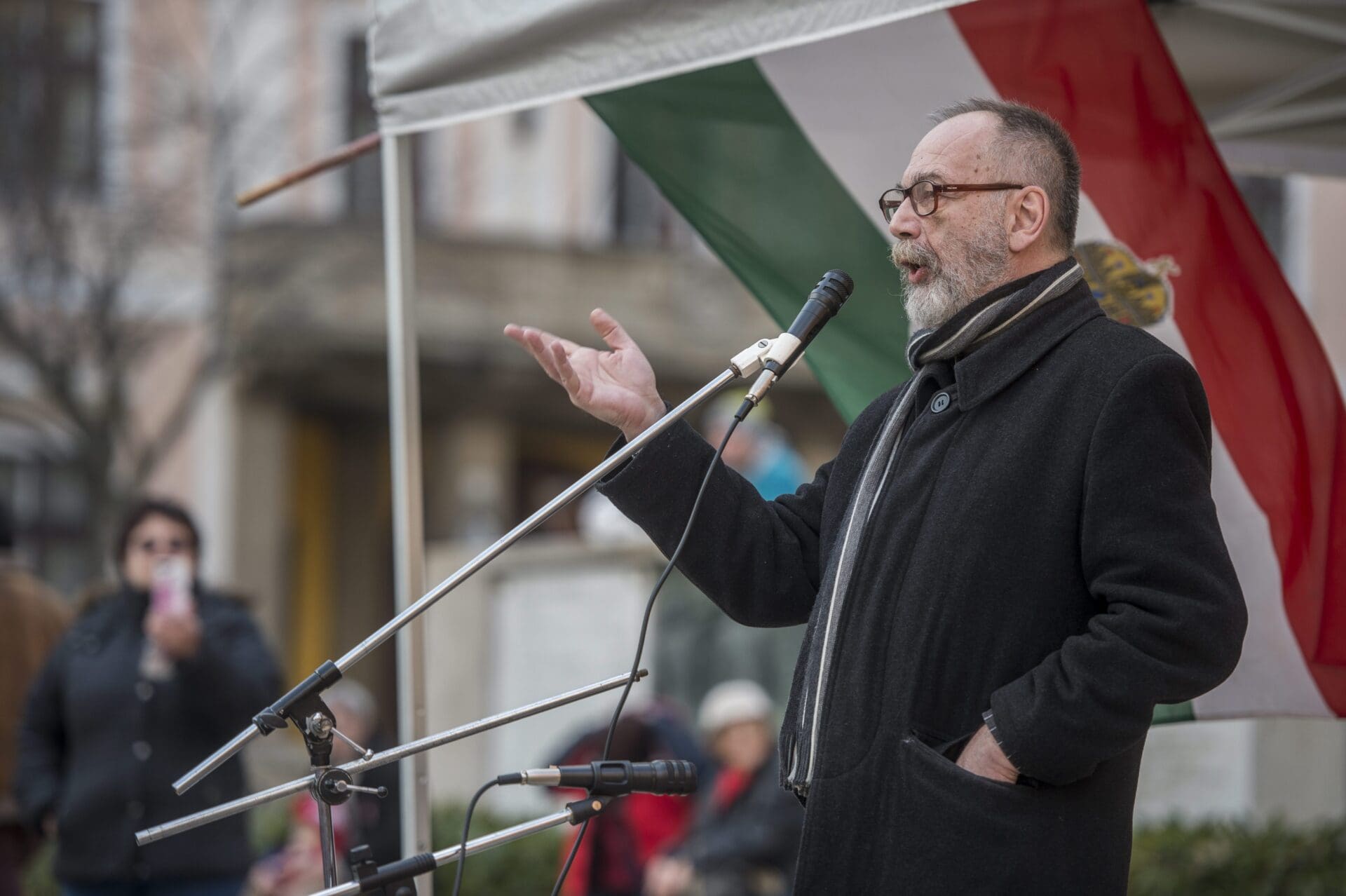Gáspár Miklós Tamás (28 November 1948, Cluj-Napoca (Kolozsvár) – 15 January 2023, Budapest) was one of the most influential Hungarian philosophers of the century. The Transylvanian-born academic and public intellectual passed away on Sunday, at the age of 74.
He was born into a family where both of his parents were committed ideological Marxists—his mother was one of the founders of the Communist Party of Romania. Despite the prevailing ideology at home, Gáspár Miklós Tamás soon grew sceptical of state socialism. After graduating from Babeș-Bolyai University in 1972, he worked as the editor of literary magazines. To escape the oppressive anti-Hungarian Ceausescu regime, he resettled in Hungary in 1978. In the mother country, he quickly moved up on the academic ladder, and by 1980 he was teaching at ELTE University in Budapest. Soon, however, due to his critical-of-the system views, and dissident activism he lost his job and was also expelled from Romania in 1981. He moved to the West, where he was teaching as a visiting professor at Yale and other US, French and British universities. From the mid-1980s he emerged as one of the most influential opposition figures and critics of the Hungarian state socialist regime. He was involved in the activities of the Alliance of Free Democrats (SZDSZ), a Hungarian liberal party established by intellectual known as ‘the democratic opposition’. In the last year of the one-party system, SZDSZ fielded him as their candidate to replace a recalled Communist MP in 1989, and Tamás became a member of the Hungarian Parliament that year. For his work during the regime change, and in recognitions of his intellectual resistance to the regime in 2009 Gáspár Miklós Tamás was presented with the Twenty Years of the Republic Award, which was given to those who had contributed the most to the collapse of the Communist regime. In 2020 he was awarded the Honorary Citizen of Budapest title.
Gáspár Miklós Tamás can only be understood as someone who always positioned himself outside of the mainstream political discourse but who was strictly in favour of intellectual freedom. As he existed outside the mainstream frameworks, conventional labels such as ‘Marxist’ or ‘Libertarian’ cannot really be attached to his writings. He seemed to have changed his position on various matters quite a number of times during his academic career. In the 1980s, for instance, Gáspár Miklós Tamás became known as an advocate of a liberal-conservative position, with emphasis on the importance of patriotism. At the time he also sympathised with libertarian thinkers as he hoped that a minimal state cannot oppress its citizenry and would bring about the freedom that Hungary lacked during the state socialist years. Two decades later, however, by the early 2000s he moved back to a more Marxist-leaning position, criticising the so-called ‘state capitalist’ structure of the former Eastern Bloc. Part of his renewed attraction to Marxism was explained by its holistic approach to understanding society, as opposed to the narrow institutional analysis of the prevailing academic paradigms. Famously, he explained the committed anti-Communism of post-Communist Central Europe with a deep and unconscious hatred of capitalism. He believed that Marxism became a scapegoat for the troubles of the region which stem not from its Communist past, but from the current state capitalist system. In his latest works, he seemed to have settled for a more Nordic style, welfare capitalist system. He accepted capitalism as a necessary evil and advocated for reducing disparities and repairing the damage done by inherent inequalities as much as possible.
While throughout his life Gáspár Miklós Tamás was at odds with every regime he lived under and with every political mainstream, his opinion was listened to and deeply valued even by those he harshly criticised. His death is mourned across the political spectrum in Hungary, and his untraditional perspective will be much missed.
Hungarian Prime Minister Viktor Orbán also took to social media to commemorate his passing. The PM said: ’The old freedom fighter is gone. Farewell, TGM!’.








